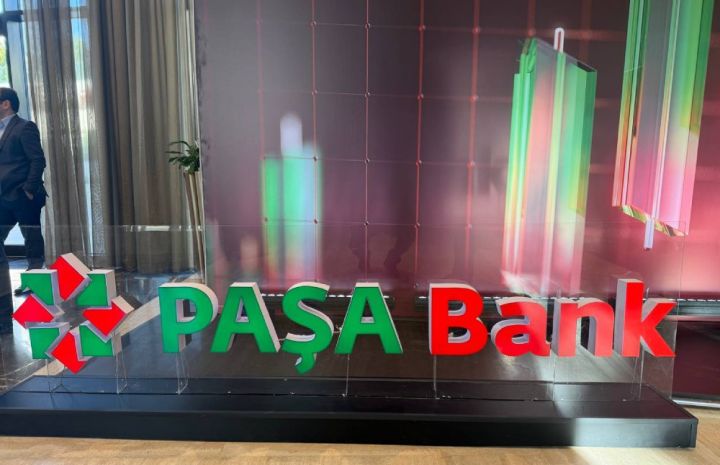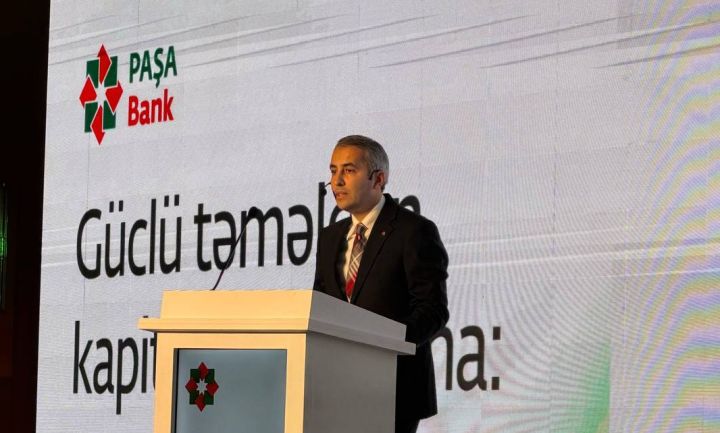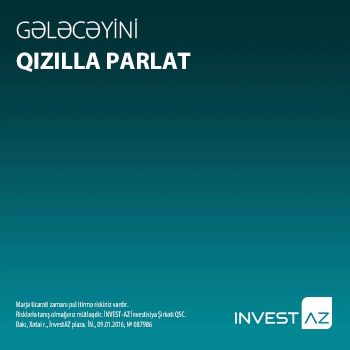“Fitch” Azərbaycanın defolt reytinqini təsdiqlədi
Proqnoz “Stabil”dir.
“Fitch Ratings” reytinq agentliyi Azərbaycanın emintentin uzunmüddətli və qısamüddətli defolt reytinqini (IDR) "BB+" səviyyəsində təsdiqləyib.
Agentliyin yaydığı məlumata görə, proqnoz “Stabil”dir, reytinq Azərbaycanın güclü xarici balansı, aşağı dövlət borcu və Dövlət Neft Fondunun iri həcmli aktivlərindən irəli gələn güclü maliyyələşmə çevikliyi ilə dəstəklənir.
Bu amillərə qarşı isə zəif idarəetmə göstəriciləri və iqtisadi siyasətin, o cümlədən valyuta məzənnəsi rejiminin proqnozlaşdırıla bilinməməsi, bank sektorunun yüksək dollarlaşması və karbohidrogen sektorundan asılılıq dayanır.
"Fitch"ə görə, "Stabil" proqnoz büdcə göstəricilərin davamlılığının möhkəmlənməsi və Ermənistanla müharibəyə qayıtma riskinin azalması ilə bağlı gözləntiləri əks etdirir.
“Lakin qeyri-neft diversifikasiyasını sürətləndirmək üçün makroiqtisadi siyasət çərçivəsinin əhəmiyyətli dərəcədə gücləndirilməsi və ya struktur islahatlarının həyata keçirilməsi ilə bağlı məhdud perspektivlər də proqnozun bu səviyyədə olmasını şərtləndirir”, - “Fitch”in hesabatında bildirilib.
XXX
Fitch Affirms Azerbaijan at 'BB+'; Outlook Stable
Fitch Ratings has affirmed Azerbaijan's Long-Term Foreign-Currency Issuer Default Rating (IDR) at 'BB+' with a Stable Outlook.
A full list of rating actions is at the end of this rating action commentary.
KEY RATING DRIVERS
The rating is supported by Azerbaijan's very strong external balance sheet, low public debt and strong financing flexibility from large sovereign wealth fund assets. Set against these factors are weak governance indicators and lack of predictability and transparency of economic policy-making, especially in relation to the exchange rate regime, high banking sector dollarisation and dependence on the hydrocarbon sector.
The Stable Outlook reflects expectations for continued balance sheet strength and reduced risk of a return to war with Armenia, but limited prospects of a significant strengthening of the macro-policy framework or implementation of structural reforms to speed up non-oil diversification.
Azerbaijan's large external buffers have been preserved during the pandemic and are supported by the higher oil price. Sovereign foreign-currency assets rose to USD51.2 billion at end-3Q21 (86% of which comprise holdings of the sovereign wealth fund SOFAZ), from USD49.9 billion at end-2020, equivalent to 26 months of current external payments. Net FX demand has been stable this year, and FX sales by SOFAZ (which are capped at the budget transfer amount) have been below the full budget allocation.
Fitch forecasts the current account returns to a surplus of 7.9% of GDP in 2021, from last year's deficit of 0.5%, before narrowing to average 5.3% in 2022-2023, mainly driven by our lower forecast average oil price (of USD55/b in 2022 and USD53/b in 2023, from USD63/b this year) but still the highest in the peer group. The net sovereign asset position is projected to increase to 84.1% of GDP at end-2023, from 83.1% at end-2020, compared with the 'BB' median of -2.1%.
The improved external outlook has further reduced the risk of a disorderly devaluation of the 1.7AZN/USD exchange rate de facto peg. Nevertheless, the continued lack of policy predictability, institutional independence, and clarity of mandates for the CBA and SOFAZ within the broader exchange rate framework adds to the risk of policy missteps and a disruptive adjustment to a severe shock, in our view.
We project a general government surplus of 4.9% of GDP in 2021, following last year's deficit of 6.5%, with accelerating capex execution towards year-end lowering the surplus relative to the 9M21 (annualised) outturn of 5.4% of GDP. The large improvement in this year's fiscal balance has been driven by the higher oil price, strong tax receipts (up 12% yoy in 9M21) on the back of economic recovery and improved compliance, and the unwinding of pandemic support measures.
We forecast the general government surplus to narrow to 1.1% of GDP in 2022 and return to a deficit of 1.0% in 2023. This largely reflects a lower oil price and faster execution of infrastructure spending on the territories reclaimed in the conflict with Armenia (to an average of 2.5% of GDP), but still compares favourably with the 'BB' median deficits of 4.0% and 3.5%, respectively. The government plans to introduce a revised fiscal rule in 2022 comprising an annual reduction in the non-oil primary balance and a debt target, the consistent implementation of which would help bolster fiscal buffers in the medium term.
General government debt is projected to decline 3pp in 2021 to 18.4% of GDP, and to level off at close to 17% in 2022-2023, the lowest in the 'BB' peer group (median 57.7% of GDP). Government on-lending and guarantees also fell to 29.1% of GDP at end-3Q21 from 33.2% at end-2020, around three-quarters of which comprise gas investment projects and the 2017 restructuring of International Bank of Azerbaijan (IBA). Fitch expects only very gradual progress in improving weak corporate governance in state-owned enterprises, overseen by the recently established Azerbaijan Investment Holding.
In our view, there has been an improvement in the prospects of a political settlement with Armenia on Nagorno-Karabakh that includes the reopening of borders and joint transport projects such as a connection with Nakhchivan and subsequent revival of the Soviet-era rail link with Russia. The presence of a Russian peacekeeping force initially agreed until 2025 and, to a lesser extent, a recent thawing in relations between Turkey and Armenia, also reduce the risk of a return to war over Nagorno-Karabakh. There remains a high degree of uncertainty over the pace and scale of Azerbaijan's reconstruction of reclaimed territories, and of any such joint infrastructure projects with Armenia.
Fitch forecasts GDP growth of 4.9% in 2021, following last year's 4.3% contraction, driven by recovery in the non-oil sector and supported by the vaccination rollout, currently 97 doses per hundred people. We project GDP growth slows to 2.9% in 2022 and 2.3% in 2023 (below the 'BB' medians of 3.8% and 3.5%) reflecting base effects next year and stagnating energy production (with a steady fall in oil production from aging fields almost compensated by growth in the gas sector). We anticipate limited reform progress to tackle structural rigidities such as the large and inefficient state-sector that constrains non-oil private sector investment, economic diversification and overall trend GDP growth.
Inflation rose to 8.5% in September, from 4.3% in April, with pressure from food, transport, and administered prices, and Fitch forecasts a further 50bp interest rate rise to 7.5% and for year-end inflation to remain elevated at 7.6%. We project inflation moderates to 4.3% by end-2022, just above the 4% central target band, as temporary pressures including from supply chain disruptions fade.
The banking sector is relatively weak, reflected by Fitch's Banking System Indicator score of 'b', although there has been some improvement in its credit fundamentals in recent years. The deposit dollarisation ratio fell to 45% at end-3Q21 from 61% at end-2019 but is still well above the 'BB' median of 18%, and Azerbaijan's largest bank, IBA, is constrained by a large open currency position, equivalent to 64% of regulatory capital at end-3Q21. The sector Tier 1 capital ratio is adequate at 16.8%, the non-performing loan ratio has fallen further to 5.5% and we expect healthy pre-impairment profit to absorb pressure on asset quality as support measures unwind.
ESG - Governance: Azerbaijan has an ESG Relevance Score (RS) of '5' for both Political Stability and Rights and for the Rule of Law, Institutional and Regulatory Quality and Control of Corruption, as is the case for all sovereigns. Theses scores reflect the high weight that the World Bank Governance Indicators (WBGI) have in our proprietary Sovereign Rating Model. Azerbaijan has a low WBGI ranking at the 26th percentile, reflecting very poor voice and accountability, relatively weak rights for participation in the political process, uneven application of the rule of law and a high level of corruption.
RATING SENSITIVITIES
Factors that could, individually or collectively, lead to negative rating action/downgrade:
- External Finances: Prolonged lower oil prices sufficient to have a material negative impact on external buffers.
- Macro: Developments in the economic policy framework that undermine macroeconomic stability, such as contributing to a rapid erosion of the sovereign's external balance sheet or disorderly devaluation of the manat exchange rate, with adverse effects on the economy, banking sector and public finances.
Factors that could, individually or collectively, lead to positive rating action/upgrade:
- Macro: Improvements in the transparency and predictability of Azerbaijan's policy framework, including exchange rate policy, that strengthens the country's ability to manage external shocks and reduces macro volatility.
- Public Finances: Greater confidence in a sustained strengthening of the public balance sheet, for example based on a credible medium-term fiscal strategy and higher and more diversified GDP growth.
- External Finances: Marked strengthening of the external balance sheet, for example due to sustained higher-than-forecast oil prices.
SOVEREIGN RATING MODEL (SRM) AND QUALITATIVE OVERLAY (QO)
Fitch's proprietary SRM assigns Azerbaijan a score equivalent to a rating of 'BB' on the Long-Term Foreign-Currency (LT FC) IDR scale.
Fitch's sovereign rating committee adjusted the output from the SRM to arrive at the final LT FC IDR by applying its QO, relative to SRM data and output, as follows:
- External Finances: +1 notch, to reflect large SOFAZ assets, which underpin Azerbaijan's exceptionally strong foreign currency liquidity position and the very large net external creditor position of the country.
Fitch's SRM is the agency's proprietary multiple regression rating model that employs 18 variables based on three-year centred averages, including one year of forecasts, to produce a score equivalent to a LT FC IDR. Fitch's QO is a forward-looking qualitative framework designed to allow for adjustment to the SRM output to assign the final rating, reflecting factors within our criteria that are not fully quantifiable and/or not fully reflected in the SRM.
BEST/WORST CASE RATING SCENARIO
International scale credit ratings of Sovereigns, Public Finance and Infrastructure issuers have a best-case rating upgrade scenario (defined as the 99th percentile of rating transitions, measured in a positive direction) of three notches over a three-year rating horizon; and a worst-case rating downgrade scenario (defined as the 99th percentile of rating transitions, measured in a negative direction) of three notches over three years. The complete span of best- and worst-case scenario credit ratings for all rating categories ranges from 'AAA' to 'D'. Best- and worst-case scenario credit ratings are based on historical performance. For more information about the methodology used to determine sector-specific best- and worst-case scenario credit ratings, visit https://www.fitchratings.com/site/re/10111579.
REFERENCES FOR SUBSTANTIALLY MATERIAL SOURCE CITED AS KEY DRIVER OF RATING
The principal sources of information used in the analysis are described in the Applicable Criteria.
ESG CONSIDERATIONS
Azerbaijan has an ESG Relevance Score of '5' for Political Stability and Rights as World Bank Governance Indicators have the highest weight in Fitch's SRM and are therefore highly relevant to the rating and a key rating driver with a high weight. As Azerbaijan has a percentile rank below 50 for the respective Governance Indicator, this has a negative impact on the credit profile.
Azerbaijan has an ESG Relevance Score of '5' for Rule of Law, Institutional & Regulatory Quality and Control of Corruption as World Bank Governance Indicators have the highest weight in Fitch's SRM and are therefore highly relevant to the rating and are a key rating driver with a high weight. As Azerbaijan has a percentile rank below 50 for the respective Governance Indicators, this has a negative impact on the credit profile.
Azerbaijan has an ESG Relevance Score of '4' for Human Rights and Political Freedoms as the Voice and Accountability pillar of the World Bank Governance Indicators is relevant to the rating and a rating driver. As Azerbaijan has a percentile rank below 50 for the respective Governance Indicator, this has a negative impact on the credit profile.
Azerbaijan has an ESG Relevance Score of '4'[+] for Creditor Rights as willingness to service and repay debt is relevant to the rating and is a rating driver for Azerbaijan, as for all sovereigns. As Azerbaijan has a track record of 20+ years without a restructuring of public debt and captured in our SRM variable, this has a positive impact on the credit profile.
Telegramda Marja.az səhifəsinə abunə olun
APA, Fitchratings
Müştərilərin xəbərləri

Azercell-in dəstəyi ilə “RobotChallenge 2026” üzrə Azərbaycanda milli seçim mərhələsinin hazırlıq işləri davam edir

OBA FMCG sektorunda ilkə imza atıb – “Sənin ideyan dəstəklənir” İnnovativ Həllər Marafonunun qalibləri müəyyənləşib – FOTO-VİDEO
SON XƏBƏRLƏR
- 1 ay sonra
- 1 həftə sonra
- 13 saat əvvəl
-

- 14 saat əvvəl
-
14 saat əvvəl
Nazir fermerlətin üzləşdikləri çətinliklərin həllinə köməklik etməyi tapşırıb
- 14 saat əvvəl
-
14 saat əvvəl
AZAL 20–30 mart tarixlərində 4 xarici şəhərə reys sayını artıracaq
-
14 saat əvvəl
Epştein sənədlərində adı çəkilən böyük liman operatorunun rəhbəri işdən çıxarılıb
-
15 saat əvvəl
Bu avtomobillərin idxalı ƏDV-dən, aksizdən və gömrük rüsumundan azad edilir
-
15 saat əvvəl
Bu əşyaların ölkəyə idxalı əlavə dəyər vergisindən azad edilir
- 15 saat əvvəl
- 16 saat əvvəl
Son Xəbərlər

Azərbaycanda Vakansiyalar - Azvak.az
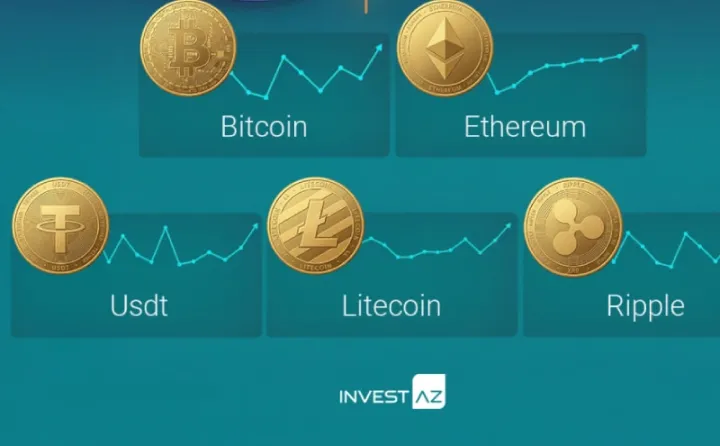
Kriptovalyuta ticarəti kursu

"Domino’s Pizza"nın "İnşaatçılar" filialı açılır

Dolların bazar ertəsi üçün rəsmi məzənnəsi müəyyən olunub
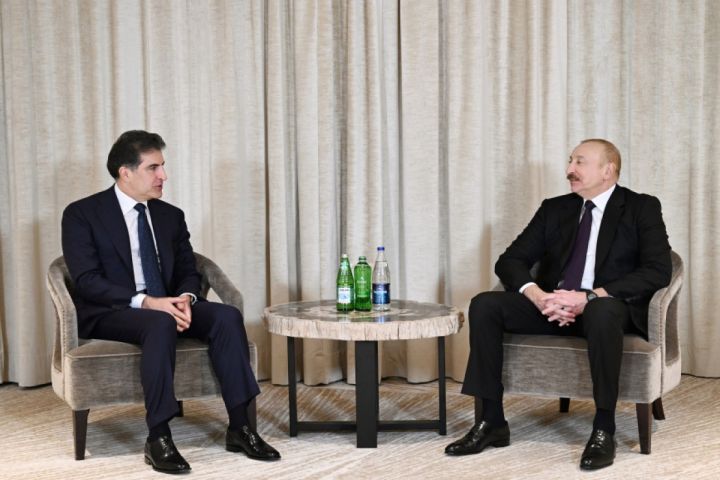
İlham Əliyev Neçirvan Bərzani ilə görüşüb

Bu əşyaların ölkəyə idxalı əlavə dəyər vergisindən azad edilir
Ən çox oxunanlar

Prezident İlham Əliyev Almaniyada səfərdədir
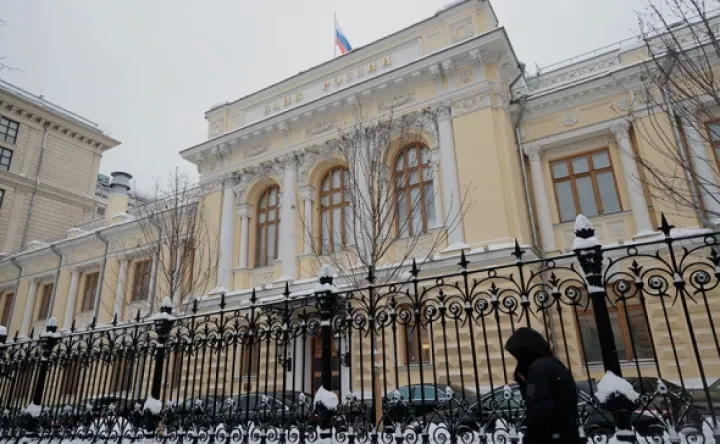
Rusiya Mərkəzi Bankı faiz dərəcəsini ardıcıl 6-cı dəfə endirib - Qərar bazar üçün gözlənilməz olub

OBA FMCG sektorunda ilkə imza atıb – “Sənin ideyan dəstəklənir” İnnovativ Həllər Marafonunun qalibləri müəyyənləşib – FOTO-VİDEO

Yasamalda ev almaq istəyənlər üçün əla fürsət: Faizsiz və öhdəliksiz satış başladı!

Birbank-dan təqaüdçülərə özəl sərfəli kredit təklifi

PAŞA Sığorta 798 min manata yaxın zərəri ödədi!
